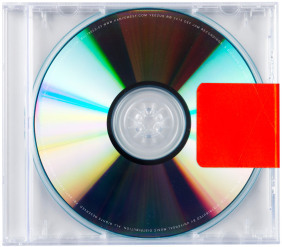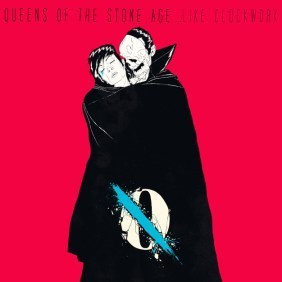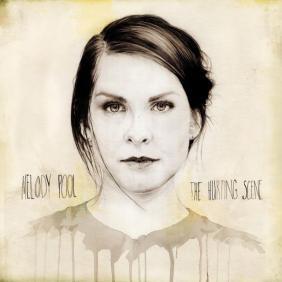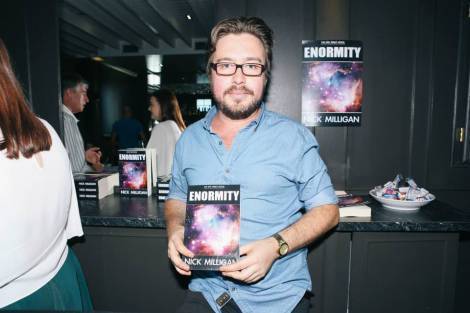Nick Milligan's Blog, page 10
January 5, 2014
Henry Rollins: interview
 A towering, explosive presence in front of the groups Black Flag and Rollins Band, Henry Rollins continues to be a vehement voice of reason, compassion and logic. A man of exhaustive energy and undying desire to absorb the vast array of cultures in the world, the former hardcore vocalist is returning to Australia with his latest spoken word tour – or “talking show” as he prefers them to be called.
A towering, explosive presence in front of the groups Black Flag and Rollins Band, Henry Rollins continues to be a vehement voice of reason, compassion and logic. A man of exhaustive energy and undying desire to absorb the vast array of cultures in the world, the former hardcore vocalist is returning to Australia with his latest spoken word tour – or “talking show” as he prefers them to be called.
He has visited Australia almost 30 times throughout his diverse career and continues to keep crowds riveted with his thought-provoking and incisive analysis of the globe’s political, social and cultural landscape.
Rollins loves Australia as much as we love him.
“I love my Australian audiences madly,” he says. “I try to attend to them as best as I can – it’s been a fantastic audience since day one. They got into my band [Black Flag] before there was even a record to sell them. “I’m very grateful.”
While many of his fans discovered him in his influential hardcore groups, and others through his role in the TV series Sons Of Anarchy, Rollins has noticed that as time goes by he has accumulated a fan base through his talking shows.
“A lot of people will come up and say, ‘Hey, I’ve been coming to the talking shows for many years. My friends played me some of your music. With all due respect, it’s really not my thing. But I love it when you do the talking shows.’ That happens more and more, and I don’t really care. If you don’t like my music, that’s great. The fact that anyone shows up to see what I do, I’m just grateful for that.”
When Rollins walks on stage and delivers one of his talking shows, which can go for two hours, he has a loose structure of topics in his head. He puts a large emphasis on preparation and says that disrespecting his audience would be his ultimate crime.
“There’s a very scripted list of topics and I allow myself to go tangential inside of the topic,” Rollins explains. “I don’t just walk out on stage and go, ‘Ok, let’s see . . . dogs are funny!’ I would never warm up in front of an audience. I think that’s grossly insulting – not to the money they’ve paid but to their time. When you disrespect someone’s time, you may as well piss on their foot. I’m extremely dialled in, to the point where two hours before the show I’m pacing the hallway, talking out loud and working through ideas.”
Rollins is always keeping his eye on world news, updating the subject matter of his shows. “It’s a stew pot – you’re continually cutting up more carrots and potatoes and throwing them in as news breaks and things are happening to me and to the world,” Rollins says. “Like if something blows up in a country and I was there last year, I’ll tell you about it. It’s like going on tour with music, you’re always looking for a new song to play to an audience.”
Most of what Rollins talks about on stage is informed by his travels to impoverished or war-torn countries. Since his last visit to Australia he has met American troops in Baghdad and at one point took refuge during a mortar attack. But despite his intense encounters in foreign countries, he has never felt more at risk than when in his home nation of America.
“I’ve nearly been killed a couple of times,” Rollins says. “In one situation the guy shot four times, put two in my friend and killed him – missed me by inches. That was a real homicide. The other time, years before, a guy tried to stab me to death but these guys pulled him off me. But those times were in America – the rest of the world has been really friendly to me. I was in a mortar attack in Baghdad, but I was in a thick-walled building so nothing was going to happen to me. But past that the world has been certainly friendly with me because I’m not looking for a fight with anyone. I go to these countries alone. I think sometimes when you’re walking the streets alone people kind of respect it. Like when you’re in a Middle Eastern country and you’re so obviously not from there. A lot of people speak English. In Iran people walked up and were like, ‘What are you doing here?’ And I always employed the same ice-breaker, I’d say, ‘I’m here to meet you!’ which makes them laugh. Then I’d say, ‘Hey, I’m Henry man, what’s happening?’ and I would stick my hand out and they’d shake it. I’ve done this in Tehran, Islamabad, Damascus, Beirut, Cleveland . . . wherever. When people see that you’re obviously curious about their culture they’re amazed that you came all that way. I’ve been invited into homes, had meals cooked for me, afternoon coffee, tea in the souq. I’m not saying [dangerous things] can’t happen. It’s not like people look at me and run away – you’ve got to be careful. But life’s too short. I’m not living under a damn rock. No way.”
Rollins rarely takes a holiday and admits that he is a “work slut”. The closest he gets to a break is “working in second gear instead of fourth”.
“But as far as going somewhere and just sitting around and getting tanned?” Rollins asks. “No. I just don’t think that way. I travel to places, but I go to countries that are tough, where it’s me and mosquitoes that carry malaria. It’s not restful, but it is eventful – and I’ll take eventful over restful anytime.”


December 28, 2013
Top 20 albums of 2013
The difficulty experienced during the construction of this list suggests that it was a very good year for music. Hard choices were made. There were some massive albums, some of which didn’t quite sneak into the this “Top 20″. It’s fair to say that in 2013 the world was conquered by two helmeted Frenchmen. But there was also some really incredible contributions from Australian artists. Without any further ado, here are my top albums of 2013. Start the countdown.
20. RÜFÜS
Atlas
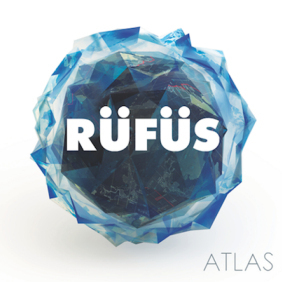 As far as chilled-out breezy summer anthems go, Rufus served up the most irresistible examples of any act in 2013. It was a breakthrough year for the three-piece and their debut record fulfilled the promise of their earlier EP. When ‘Take Me’ coos “Take me away across the ocean, out in the horizon the night is falling…” it’s hard not to close your eyes and move to the Caribbean-inspired synth stabs. There’s nothing too cerebral or ground-breaking on Atlas – just direct lyrics, endless hooks and addictive beats. Each tune is an earworm that burrows directly to the pleasure centre of the brain. It’s not only likely that Atlas will soundtrack many all-night parties this summer, but that Rufus will follow in the internationally placed footsteps of Cut Copy.
As far as chilled-out breezy summer anthems go, Rufus served up the most irresistible examples of any act in 2013. It was a breakthrough year for the three-piece and their debut record fulfilled the promise of their earlier EP. When ‘Take Me’ coos “Take me away across the ocean, out in the horizon the night is falling…” it’s hard not to close your eyes and move to the Caribbean-inspired synth stabs. There’s nothing too cerebral or ground-breaking on Atlas – just direct lyrics, endless hooks and addictive beats. Each tune is an earworm that burrows directly to the pleasure centre of the brain. It’s not only likely that Atlas will soundtrack many all-night parties this summer, but that Rufus will follow in the internationally placed footsteps of Cut Copy.
19. PUSHA T
My Name Is My Name
Pusha T’s history as part of the duo Clipse – with brother No Malice – goes back to the mid-90s. Born in The Bronx and emerging via collaborations with The Neptunes, Pusha T here steps out on his own. Kanye West produces and co-writes – and his flourishes are evident but restrained (though West can be heard in a few autotune wailings). There is a raw, minimalistic quality to My Name Is My Name. The production is cavernous and allows Pusha T space to flow freely with authority. When the beats tighten the record enters dirtier territory, full of chill-inducing samples and trappy blips. Some have said the record is a nice companion piece to West’s Yeezus but, as an exploration of the consequences of life on the streets and newfound fame, it goes way, way further down the rabbit hole.
18. BEASTMILK
Climax
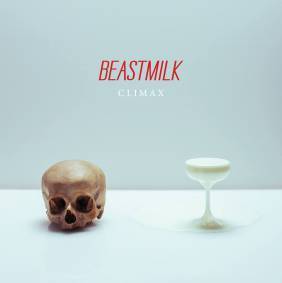 The throbbing, chaotic opener of Finnish quartet Beastmilk’s debut record, ‘Death Reflects Us’, does instantly bring a number of other acts to mind, but it’s hard to not be swept up in the heavy, gloomy tumult. It’s not far-fetched to assume that the members of Beastmilk are into Joy Division and Danzig. But songs like ‘Genocidal Crush’ have choruses that are just too big to ignore. Interesting, the band’s deep voiced singer, Kvohst, is a Brit born Matthew McNerney. Despite the mysterious moniker, his guttural howl is perfect for the mood and atmosphere of this spacious, primal and energetic maelstrom of an album.
The throbbing, chaotic opener of Finnish quartet Beastmilk’s debut record, ‘Death Reflects Us’, does instantly bring a number of other acts to mind, but it’s hard to not be swept up in the heavy, gloomy tumult. It’s not far-fetched to assume that the members of Beastmilk are into Joy Division and Danzig. But songs like ‘Genocidal Crush’ have choruses that are just too big to ignore. Interesting, the band’s deep voiced singer, Kvohst, is a Brit born Matthew McNerney. Despite the mysterious moniker, his guttural howl is perfect for the mood and atmosphere of this spacious, primal and energetic maelstrom of an album.
17. FRIGHTENED RABBIT
Pedestrian Verse
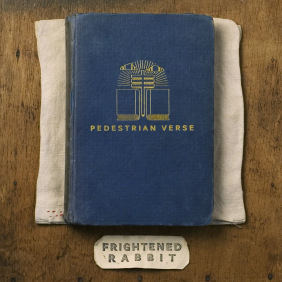 Frightened Rabbit frontman Scott Hutchison must make many songwriters feel very inadequate. His lyrical turns of phrase are a series of deft, incisive obersvations and he pens energetic backdrops that subvert his self-deprecation. His voice is very, very Scottish and adds warmth and texture to his poetry. On their fourth album Frightened Rabbit became even more inventive, catchier and found a wider audience without compromising on their rich musical character. Pedestrian Verse bears no modern quirks – it feels like a record that operates outside of trends and will inevitably feel fresh in many years to come.
Frightened Rabbit frontman Scott Hutchison must make many songwriters feel very inadequate. His lyrical turns of phrase are a series of deft, incisive obersvations and he pens energetic backdrops that subvert his self-deprecation. His voice is very, very Scottish and adds warmth and texture to his poetry. On their fourth album Frightened Rabbit became even more inventive, catchier and found a wider audience without compromising on their rich musical character. Pedestrian Verse bears no modern quirks – it feels like a record that operates outside of trends and will inevitably feel fresh in many years to come.
16. THE SEABELLIES
Fever Belle
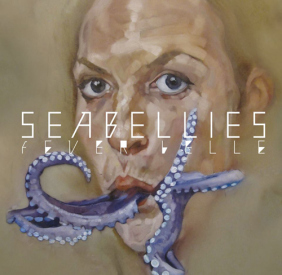 This particular music critic found it very difficult to fault The Seabellies’ debut record, By Limbo Lake. So much so that it was given a perfect five out of five. It was hard to guess where the Newcastle collective might go next, but it was an equally exciting prospect. The result is another collection of arresting anthems that are this time tinged with melancholy and darker nuances inspired by singer Trent Grenell’s time in Berlin (perhaps most evident in single ‘Paper Tiger’). Maybe it’s the vocals, the kinetic drums or the warm waves of instrumentation, but in Australia The Seabellies are unparalleled purveyors of lofty, enveloping indie-pop. ‘Berlin Horses’ is a joyous highlight.
This particular music critic found it very difficult to fault The Seabellies’ debut record, By Limbo Lake. So much so that it was given a perfect five out of five. It was hard to guess where the Newcastle collective might go next, but it was an equally exciting prospect. The result is another collection of arresting anthems that are this time tinged with melancholy and darker nuances inspired by singer Trent Grenell’s time in Berlin (perhaps most evident in single ‘Paper Tiger’). Maybe it’s the vocals, the kinetic drums or the warm waves of instrumentation, but in Australia The Seabellies are unparalleled purveyors of lofty, enveloping indie-pop. ‘Berlin Horses’ is a joyous highlight.
15. DRENGE
Drenge
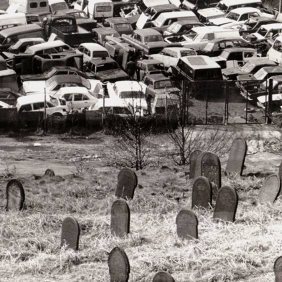 They’re two English brothers and their name means “boys” in Danish. But their music is like two T-Rex’s engaged in an aggressive jelly wrestle. This debut record features some of the meanest guitar grooves of the year, weaving together heavy fuzz and snarky, cheeky lyrics. Eoin and Rory Loveless manage to pull some tight melodies from the sludgy quagmire of archaic drums and axe distortion, and shed any comparisons to The White Stripes or The Black Keys with the epic eight-minute ‘Let’s Pretend’. Drenge have been tagged as “post-grunge” but, when it boils down to it, the most appropriate descriptors sound something like “dirty, heavy and fucking cool”.
They’re two English brothers and their name means “boys” in Danish. But their music is like two T-Rex’s engaged in an aggressive jelly wrestle. This debut record features some of the meanest guitar grooves of the year, weaving together heavy fuzz and snarky, cheeky lyrics. Eoin and Rory Loveless manage to pull some tight melodies from the sludgy quagmire of archaic drums and axe distortion, and shed any comparisons to The White Stripes or The Black Keys with the epic eight-minute ‘Let’s Pretend’. Drenge have been tagged as “post-grunge” but, when it boils down to it, the most appropriate descriptors sound something like “dirty, heavy and fucking cool”.
14. NICK CAVE and THE BAD SEEDS
Push The Sky Away
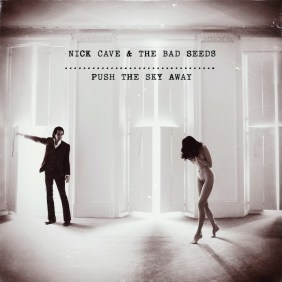 In his own words Nick Cave said this of The Bad Seeds’ 15th studio record: “If I were to use that threadbare metaphor of albums being like children, then Push The Sky Away is the ghost-baby in the incubator and Warren’s loops are its tiny, trembling heart-beat.” The “Warren” to whom Cave refers is multi-instrumentalist Warren Ellis, who played a larger role in the making of this record. This was the band’s first release without long-time collaborator Mick Harvey. The album has a consistently meditative, minimalist and dream-like milieu, as if a shimmering curtain of echoes has been draped over the band. Piercing notes, strings and loops meld, creating a stark backdrop for Cave’s wry lyrics and dark storytelling. Push The Sky Away is yet another accomplished volume in the group’s remarkable library.
In his own words Nick Cave said this of The Bad Seeds’ 15th studio record: “If I were to use that threadbare metaphor of albums being like children, then Push The Sky Away is the ghost-baby in the incubator and Warren’s loops are its tiny, trembling heart-beat.” The “Warren” to whom Cave refers is multi-instrumentalist Warren Ellis, who played a larger role in the making of this record. This was the band’s first release without long-time collaborator Mick Harvey. The album has a consistently meditative, minimalist and dream-like milieu, as if a shimmering curtain of echoes has been draped over the band. Piercing notes, strings and loops meld, creating a stark backdrop for Cave’s wry lyrics and dark storytelling. Push The Sky Away is yet another accomplished volume in the group’s remarkable library.
13. ARCTIC MONKEYS
AM
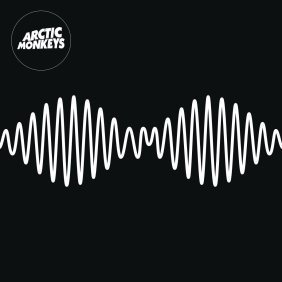 In the words of Josh Homme, who made a contribution to Arctic Monkeys’ fifth record, “It’s not disco [as such], but it’s like a modern, dancefloor sexy record. It’s really good.” Indeed, singer Alex Turner and co. delivered an album that slinks with midnight grooves and production that is both thick and smoky. From downtempo opener ‘Do I Wanna Know?’ to the thumping rock of ‘Arabella’, AM is an album to have sex to. It also continues the Arctic Monkeys’ growth into the band worthy of the record-breaking success and hype of their 2006 debut.
In the words of Josh Homme, who made a contribution to Arctic Monkeys’ fifth record, “It’s not disco [as such], but it’s like a modern, dancefloor sexy record. It’s really good.” Indeed, singer Alex Turner and co. delivered an album that slinks with midnight grooves and production that is both thick and smoky. From downtempo opener ‘Do I Wanna Know?’ to the thumping rock of ‘Arabella’, AM is an album to have sex to. It also continues the Arctic Monkeys’ growth into the band worthy of the record-breaking success and hype of their 2006 debut.
12. LONDON GRAMMAR
If You Wait
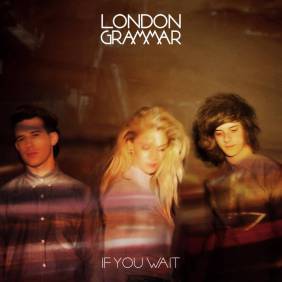 Nottingham’s London Grammar this year introduced the world to a vocalist with all the emotional sorcery of Florence Welch – but, dare I say it – with even better songs. Hannah Reid’s haunting voice is the blooming bouquet in a vase of minimal synths and echoed beats. It’s stirring, ghostly music that’s stained with the human experience. The group’s single ‘Wasting My Young Years’ would have been the year’s best break-up song if not for Melody Pool’s heart-wrenching ‘Henry’. Regardless, Reid’s husky contralto vocals – with help from keyboardist/percussionist Dot Major and guitarist Dan Rothman – make If You Wait a listening experience that takes your breath away.
Nottingham’s London Grammar this year introduced the world to a vocalist with all the emotional sorcery of Florence Welch – but, dare I say it – with even better songs. Hannah Reid’s haunting voice is the blooming bouquet in a vase of minimal synths and echoed beats. It’s stirring, ghostly music that’s stained with the human experience. The group’s single ‘Wasting My Young Years’ would have been the year’s best break-up song if not for Melody Pool’s heart-wrenching ‘Henry’. Regardless, Reid’s husky contralto vocals – with help from keyboardist/percussionist Dot Major and guitarist Dan Rothman – make If You Wait a listening experience that takes your breath away.
11. THE STROKES
Comedown Machine
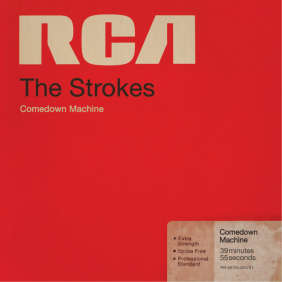 After a whirlwind recording session at Los Angeles’ legendary Electric Lady studios, the perennially cool five-piece offered up 11 uber-catchy, sunny summer pop songs. The face-melting, duelling fretwork of Nick Valensi and Albert Hammond Jr was swapped for buzzes of keyboard and mellotron. The result is exactly as the album’s title suggests – an inoffensive, sublime collection of tunes that feel suited to the sunrise after an all-night bender.
After a whirlwind recording session at Los Angeles’ legendary Electric Lady studios, the perennially cool five-piece offered up 11 uber-catchy, sunny summer pop songs. The face-melting, duelling fretwork of Nick Valensi and Albert Hammond Jr was swapped for buzzes of keyboard and mellotron. The result is exactly as the album’s title suggests – an inoffensive, sublime collection of tunes that feel suited to the sunrise after an all-night bender.
10. JAKE BUGG
Shangri La
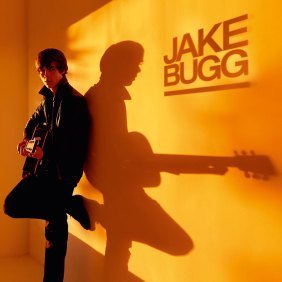 While he has had assistance from songwriters Iain Archer and Brendon Benson, and super-producer Rick Rubin, there is no denying the talents of 19-year-old Jake Bugg. Born Jake Kennedy, this is the pom’s second album in as many years and demonstrates the precocious charm of a young Bob Dylan and the natural swagger of a young Alex Turner. Musically, he is somewhere in between. Bugg’s a hot guitarist and an understated performer. Opening with three livewire rockers, the songwriter then shows off grander, assured tracks like instant classic ‘Simple Pleasures’. Let’s hope it’s not long before album number three.
While he has had assistance from songwriters Iain Archer and Brendon Benson, and super-producer Rick Rubin, there is no denying the talents of 19-year-old Jake Bugg. Born Jake Kennedy, this is the pom’s second album in as many years and demonstrates the precocious charm of a young Bob Dylan and the natural swagger of a young Alex Turner. Musically, he is somewhere in between. Bugg’s a hot guitarist and an understated performer. Opening with three livewire rockers, the songwriter then shows off grander, assured tracks like instant classic ‘Simple Pleasures’. Let’s hope it’s not long before album number three.
09. WHITLEY
Even The Stars Are A Mess
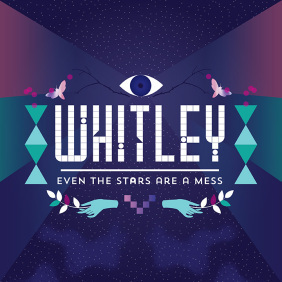 After the release of his soaring and lush folk-pop opus Go Forth, Find Mammoth, it appeared Lawrence Greenwood might turn his back on the music industry for good. But the songwriter ventured off into the wilderness, travelling to remote areas of Cuba, Panama and Peru to experiment with hallucinogenic substances, and then camped out in an abandoned church in the middle of an Italian forest to make his third Whitley record. The result? A hypnotic, echoed, nuanced and confessional vision that draws you deeper with every listen.
After the release of his soaring and lush folk-pop opus Go Forth, Find Mammoth, it appeared Lawrence Greenwood might turn his back on the music industry for good. But the songwriter ventured off into the wilderness, travelling to remote areas of Cuba, Panama and Peru to experiment with hallucinogenic substances, and then camped out in an abandoned church in the middle of an Italian forest to make his third Whitley record. The result? A hypnotic, echoed, nuanced and confessional vision that draws you deeper with every listen.
08. A$AP ROCKY
Long. Live. A$AP
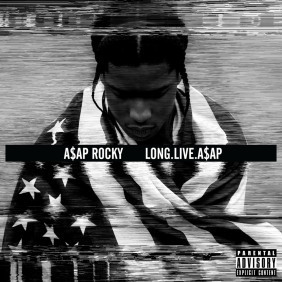 Sonically, A$ap Rocky’s “debut” record – the ambitious follow-up to his breakthrough mixtape – feels like a spiritual continuation of Kendrick Lamar’s brilliant Good Kid. But the point of difference here is that Rocky is documenting life as a Harlem drug dealer, as opposed to Lamar’s life in California’s Compton. Naturally much of the lyrical content is about finding fame and money, as Rocky opens ‘Hell’ with “We use to wear rugged boots now, it’s all tailored suits, Audemars Piguets for my criminal recruits.” But the dense, echoed waves of synth and samples, mixed with the slowed-down vocal effects, create a druggy, languid, absorbing atmosphere. And his hedonistic anthems ‘Fuckin’ Problems’ and ‘Wild For The Night’ - despite their gleeful sexism – are two of the most infectious tracks of the year.
Sonically, A$ap Rocky’s “debut” record – the ambitious follow-up to his breakthrough mixtape – feels like a spiritual continuation of Kendrick Lamar’s brilliant Good Kid. But the point of difference here is that Rocky is documenting life as a Harlem drug dealer, as opposed to Lamar’s life in California’s Compton. Naturally much of the lyrical content is about finding fame and money, as Rocky opens ‘Hell’ with “We use to wear rugged boots now, it’s all tailored suits, Audemars Piguets for my criminal recruits.” But the dense, echoed waves of synth and samples, mixed with the slowed-down vocal effects, create a druggy, languid, absorbing atmosphere. And his hedonistic anthems ‘Fuckin’ Problems’ and ‘Wild For The Night’ - despite their gleeful sexism – are two of the most infectious tracks of the year.
07. IRON & WINE
Ghost on Ghost
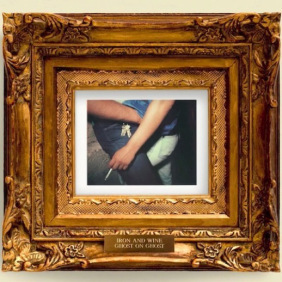 If it was still debatable after the release of Sam Beam’s two most recent records – 2007′s The Shepherd’s Dog and 2011′s Kiss Each Other Clean – then it was indisputable after Ghost on Ghost that the songwriter is the world’s best crafter of sunny, lush, parochial folk music. With deft poetic lyricism and stirring, masterful arrangements, this fifth record suggests that the South Carolina native can do no wrong. The tunes are timeless, the hooks irresistible and the touches of strings and brass truly sublime.
If it was still debatable after the release of Sam Beam’s two most recent records – 2007′s The Shepherd’s Dog and 2011′s Kiss Each Other Clean – then it was indisputable after Ghost on Ghost that the songwriter is the world’s best crafter of sunny, lush, parochial folk music. With deft poetic lyricism and stirring, masterful arrangements, this fifth record suggests that the South Carolina native can do no wrong. The tunes are timeless, the hooks irresistible and the touches of strings and brass truly sublime.
06. CITY AND COLOUR
The Hurry and The Harm
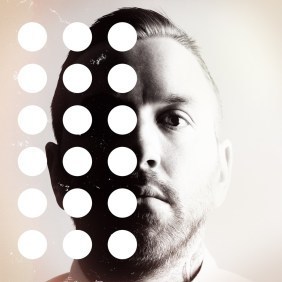 While his departure from Canadian post-hardcore group Alexisonfire was bittersweet for fans, there’s no doubt that Dallas Green made the right decision in exploring this folk-rock direction as City and Colour. His fourth album is no great departure from the achingly beautiful predecessor, 2011′s Little Hell, but includes tunes that are some 2013′s musical highlights. From the Southern rock of ‘Thirst’ to wistful, reflective ballads like the record’s title track, Green demonstrates that his pure, beautiful voice is equal parts versatile and fragile.
While his departure from Canadian post-hardcore group Alexisonfire was bittersweet for fans, there’s no doubt that Dallas Green made the right decision in exploring this folk-rock direction as City and Colour. His fourth album is no great departure from the achingly beautiful predecessor, 2011′s Little Hell, but includes tunes that are some 2013′s musical highlights. From the Southern rock of ‘Thirst’ to wistful, reflective ballads like the record’s title track, Green demonstrates that his pure, beautiful voice is equal parts versatile and fragile.
05. KANYE WEST
Yeezus
The “Louis Vuitton Don” revealed this year that his phenomenal record My Beautiful Dark Twisted Fantasy was just one of many. While he may have continued to divide the public with continued provocation – exposing many a daft, gullible git in the process – West’s most powerful statements were made in the recording studio. Yeezus is West’s most hard-hitting release and it, in a year when the rapper welcomed his first child and engaged his girlfriend, shuns romanticism. The lyrics on Yeezus tie themes of racism, fame, oppression, superficiality and sexual desire into a dense knotted ball that is at times hard to unravel – and at other times impossible. But West dares you to listen – and dares you to take offense. Evident, though, is the artist’s views on the evolution of black culture and oppression, pointing out that shackles are easily replaced in any culture with other binds – ropes that are no less restrictive. Most biting, perhaps, is West’s sampling of Nina Simone’s landmark recording of ‘Strange Fruit’ on the track ‘Blood on the Leaves’, in which we examine a public lynching of a different kind – a protagonist dragged through the courts because of an MDMA-fuelled one-night stand. Regardless of whether you believe West to be trite and self-important, there is no questioning the fact that he continues to rewrite the hip hop manifesto.
04. QUEENS OF THE STONE AGE
…Like Clockwork
There’s no other band on the planet that sounds like Queens of the Stone Age. And on …Like Clockwork, singer and songwriter Josh Homme continued his group’s legacy of hot and heady stoner-blues. This record is unpredictable, dangerous and smouldering. QOTSA continue to be inventive and make sexually-charged music that drags you out into the Californian desert for an evening of primal intoxication. And while the list of guest musicians is exorbitant – Elton John, Dave Grohl, Alex Turner, Trent Reznor, Jake Shears – their appearances are woven into the fabric of …Like Clockwork., rather than featuring as star attractions.
03. DAFT PUNK
Random Access Memories
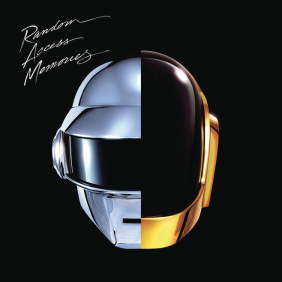 With mountains of hype and a reported production price-tag in excess of a million dollars, Random Access Memories ventured way beyond what any of Daft Punk’s global fanbase could have expected. On their masterful fourth studio record, the space-suited electronic duo pay homage to their musical heroes not through imitation, but by employing their respective musical philosophies. The result is another cosmic journey that fuses guest appearances from a series of influential icons – Giorgio Morodor, Paul Williams, Nile Rogers etc – with an array of genres that, when combined, form a blueprint for the future of pop and dance music. When listening to RAM, you cannot help but lose yourself to dance.
With mountains of hype and a reported production price-tag in excess of a million dollars, Random Access Memories ventured way beyond what any of Daft Punk’s global fanbase could have expected. On their masterful fourth studio record, the space-suited electronic duo pay homage to their musical heroes not through imitation, but by employing their respective musical philosophies. The result is another cosmic journey that fuses guest appearances from a series of influential icons – Giorgio Morodor, Paul Williams, Nile Rogers etc – with an array of genres that, when combined, form a blueprint for the future of pop and dance music. When listening to RAM, you cannot help but lose yourself to dance.
02. MELODY POOL
The Hurting Scene
It’s safe to say that the writing and recording of Melody Pool’s incredible debut record took the Kurri Kurri songwriter across the full gamut of human emotion. From the trough of heartbreak to the peak of taking up an offer to record in Nashville, Pool’s emotional trials and tribulations are laid bare on these 12 accomplished tracks. The Hurting Scene‘s centrepiece is ‘Henry’ – a break-up song that is not only a maturely crafted and truly revelatory ballad, but also a timeless statement that will no doubt be embraced by women, young and old, across generations to come. And, hell, it might even make a few men take a good hard look at themselves.
01. THE DRONES
I See Seaweed
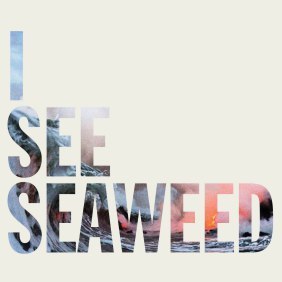 After writing, recording and releasing his stunning and epic solo acoustic record Strange Tourist, Gareth Liddiard was intent on picking up his electric guitar and creating noise. I See Seaweed is, indeed, a noisy album. But the band’s colossal instrumentation and atmosphere is crafted into vivid, cinematic landscapes that are brought to life by Liddiard’s sinister vocals and continually fascinating lyrics.
After writing, recording and releasing his stunning and epic solo acoustic record Strange Tourist, Gareth Liddiard was intent on picking up his electric guitar and creating noise. I See Seaweed is, indeed, a noisy album. But the band’s colossal instrumentation and atmosphere is crafted into vivid, cinematic landscapes that are brought to life by Liddiard’s sinister vocals and continually fascinating lyrics.
Look closely at I See Seaweed‘s cover and you will see that contained within is a dramatic painting of a rising wave that prepares to crash on the shore of an erupting volcano. It’s the perfect metaphor for the album – slow-building, primal currents that invariably heat into oblivion – and somehow feel channelled from the ghosts of human history.


December 18, 2013
Josh Pyke: interview
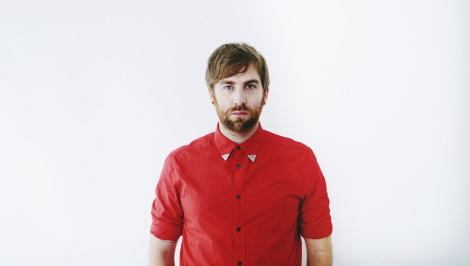
FINDING BALANCE: Josh Pyke is a decade into his career and has found balance between music and family.
While folk singer-songwriter Josh Pyke will be solo on his “Lone Wolf Tour”, the Sydneysider never feels alone on the road.
“On stage you never feel like you’re alone because you’re engaging with the audience,” Pyke says. “It’s as lonely as touring always is for me – I absolutely love it, but it does take me away from my family. It’s a double-edged sword. I’ve found a good balance in the last couple of years where [when touring] I’ll have four nights away and then three nights at home.”
After a national tour with his full band in support of fourth studio record The Beginning and End of Everything, Pyke is back in troubador-mode for a solo gig in the Hunter this March. The stripped-back performance reflects the making of his latest album, which was an individual project.
“I wanted to go back to how I made records in the past, which was by myself,” Pyke says. “The last album [Only Sparrows] was really collaborative – we had a full band and it was really great.”
While Pyke has never made large departures from the warm folk sound of breakthrough single Middle of the Hill, which was on very high rotation on Triple J when it was released in 2005, his experience of making each record since has been varied.
“Although it might not be immediately apparent when you listen to my records, when I think of my records they’re all very different,” Pyke explains. “[2005’s EP] Feeding The Wolves was based on my demos and we recorded it in my parents’ lounge room and a couple of makeshift studios around the place. [Memories & Dust] was a more professional vibe but was still just me and Wayne Connolly recording it and covering a lot of the instruments between the two of us. [Chimney’s Afire] I produced myself and was doing all the ProTools editing and mixing. Only Sparrows was very much a collaborative thing because I had been solo for so long that I really wanted to expand and let that into my musical life – I loved that experience. When it came time to do [The Beginning and The End of Everything] I had done all these demos in the studio at home that were really developed and decided I didn’t need too much extra influence.”
Pyke made the new record with producer John Castle in Melbourne. The songwriter admits that the recording process is his favourite aspect of being a professional songwriter. “My first love is recording – songwriting is about staying sane, and is something I have to do,” Pyke says. “But recording and producing are things I’m very passionate about. I have a regular Friday night jam session with a friend of mine where we’re recording a real stoner-rock, psychedelic record. Being in the studio is a chance to be a kid again, playing with different toys. Half the time you’re doing crazy stuff. The other night I suddenly had a [mental] bird’s eye view of me and my buddy Dave – we were hitting the concrete floor with drumsticks and a big log to get this particular drum sound. I thought, ‘Wow, this is like I’m a crazy person’. In the studio you feel this mad inspiration and it’s a feeling that I seek out as much as I can.”
Pyke has been prolific since his debut EP, Current Works Volume 1, in 2004. Alongside his own material is work with supergroup Basement Birds, live tribute shows to The Beatles’ White Album and collaborations with 360, Katie Noonan, Wendy Matthews and many others. He is currently working on a collaboration with friend and fellow folk singer Lior.
The songwriter admits that he often considers what it is that continues to drive his creativity. “Over the years I’ve really analysed what it is that keeps me going,” Pyke says. “At times [a music career] is quite hard and also at other times you’re dealing with aspects that I don’t feel comfortable with at all. I completely acknowledge that it’s a part of the gig that when you put out a record you’re going to be judged and people are going to review it. And people are going to speak fondly or negatively about it and either of those can have a strange effect on you. I can read 10 good reviews and then one slightly negative one and I just feel blue all day. And there was a time when I was touring and away so much that it was so hard to keep a normal life going. But the reason that I always kept on pushing forward is that in my musical life I’m searching for the same thing I search for in my personal life, which is balance. I feel like after 10 years I’ve found that, where I can record as little or as much as I want because I have a studio at home. When it starts to feel uninspired and I’m returning to the same studio tricks I just stop for a while. Or I record some weird, ambient soundtrack music for kicks. When I tour too much I just stop and have a break.”
Pyke remains a radio favourite and has won ARIAs. His national tours invariably sell out in most cities. But the 35-year-old holds on to the idea that there are great accomplishments ahead.
“It’s just a psychological battle every day,” Pyke laughs. “Logically yes, it should be that I feel like I don’t have much to prove. But I just can’t stop pushing. In some ways I do feel less pressure because I feel like I have more freedom to experiment and hope that these hardcore fans will go with me on stuff. But on the other hand I always feel like I don’t want to lose what I have. But one good thing which I see as a blessing is that I’ve never had a massive peak [in popularity]. I’ve always been fairly consistent, which I feel very lucky about. I’ve had four top 10 records but I’ve never had a number one [album]. I’ve never had a massive, massive single that’s been smashed on commercial radio and taken me to a new level. I’d rather not have a peak and then spend a number of years going into a trough. It’s been a blessing in disguise.”
Pyke believes that The Beginning and The End of Everything is no more personal than any of his other albums, but deals with weightier subjects. “All of my records are personal because I write from my personal experiences,” Pyke says. “But I think it’s more that the things I was experiencing and wrote about [on the new record] were more personally intense. In the past I thought I knew about love and heartbreak and the challenges of life. And then you have kids and you realise you didn’t know anything about anything. A lot of that informed the [new] songs whether or not it was specifically about kids or the challenges of trying to be a better person, or exploring the changing nature of desire. So those things, put in the context of what I had been through in the past years, made it a more personally intense album, rather than a more personal album.”
Another subject that inspired Pyke’s lyrics on the new album was the idea of legacy. The continued popularity of his music confirms that it has touched people’s lives. “It’s a strange thing writing songs because as soon as you put them out into the world, they don’t really belong to you any more,” Pyke says. “People tell me all the time that they’ve used my songs in their wedding ceremonies and memorial services. It’s incredibly flattering and it’s a beautiful thing that these songs I’ve created go out into the world and have this life of their own and become a part of other people’s lives that I may never meet. That’s a really powerful thing. But it means that the songs almost become less personal for me because they become everybody’s. But then I have these experiences when I’m playing the songs live and I remember exactly what I’m singing about and I can visualise what every verse and every word meant to me at the time. In some ways the songs are more like a diary and a connection to my past and my desires and my psyche. In terms of legacy I feel like the thing that you leave behind more than anything else, more than songs or money, is other people’s memory of you. The thing that you can’t own is the thing you pass on the most. It’s the most objective thing that you can leave – how other people remember you and how you’ve touched other people’s lives. The thing I want to leave the most is that people have a warm memory of me. It’s quite difficult to achieve, but it’s something that keeps you striving to be your best.”
While some artists feel uncomfortable about playing their old material, and revisiting the emotional state they were in at that time in their lives, Pyke remains proud of his earliest work.
“The brilliant thing about playing [songs] live is that they take on a new meaning,” he says. “Every year that goes by I play Middle of the Hill about 100 times. But every year when I sing: ‘You could never really see the top from the bottom, but I don’t pay enough attention to the good things when I got ‘em’, I think about all the good things that I’ve got and how I need to pay more attention to them. So it connects me to my present as well as my past. I wrote that song in my bedroom in my parents’ house because I had to move home because I had no money and I was trying to pursue being a professional musician. Every time I play it at a festival and I hear all these people sing it back, I can’t help but feel how far things have come.”


December 15, 2013
Melody Pool: interview

UNCHAINED MELODY: Melody Pool has had a massive year.
When the Telstra Road to Discovery competition crowned Kurri Kurri’s Melody Pool as its Songwriter of the Year in January 2013, it lived up to its name. Fast forward less than a year and Pool has a publishing deal with Mushroom, a recording contract with Liberation and has just toured through Europe. With a captivating stage presence and knack for penning instant country-folk classics, Pool’s talents have been forged since around the age of eight, when the singer would join her father Alby on stage.
But she is no longer Kurri’s best-kept secret. Pool’s European support shows with Californian folk duo The Milk Carton Kids, saw her play to hundreds of people in each venue. Cities on the tour included Munich, Paris, Brussels, Cologne, Utrecht, Frankfurt, Hamburg, London, Manchester and Glasgow.
“It was pretty special,” Pool says. “It was really cool to play all these amazing churches, and cathedrals and town halls across Europe. I think my favourite venue was Union Chapel in London. It was this insanely old, huge chapel and was just stunning. There were beautiful audiences all around Europe – they’re very attentive. And with the Milk Carton Kids it was the right crowd as well – it demands an attentive audience.”
A particularly atmospheric evening in France’s romantic capital stands out as a highlight for the performer. “My favourite show was definitely Paris, which was unexpected and very cool,” Pool says. “It was a tiny little bar, but it had a second story with a balcony. I really liked it because there were these two big gargoyles up on the balcony staring down at the stage. I look up quite a bit when I play and all I could see were these two gargoyles, which was cool.”
Pool also returned to Nashville where she performed at the Americana festival. Here she brushed shoulders with some famous faces. “I think my highlight was actually meeting Jakob Dylan,” Pool swoons of her encounter with the Wallflowers vocalist and son of Bob. “I was very excited for that.”
Pool also met actor Ed Helms, known to many for his role in The Hangover franchise. But while some celebrities made an impression on the 22-year-old, Pool quickly gained her own fans.
“I sold a bunch of CDs and people were really lovely over there,” Pool says. “I’d only played in Nashville before and never played in a country where my native language wasn’t theirs. I had to get used to it, because I’m Australian and I talk really fast. I understood the Germans better than I understood the Scottish people – they speak so fast. I’ve had a lot of interaction with some of those people through Facebook since, which is awesome.”
Pool wants to return to Europe in 2014, as well as play another show at Nashville’s Americana Music Festival and Conference. That American city holds a special place in Pool’s heart – it is where she recorded her stunning debut record, The Hurting Scene, with producer Jace Everett and Brad Jones.
The songwriter hopes to return there to record her second record around September 2014. “At the moment I’m just demoing a bunch of songs to send to all ‘my people’,” smiles Pool, referring to the team behind her at Liberation and Mushroom Publishing. “I’m lucky because last year I had Jace and my parents telling me whether my songs are alright. This year I’ll have Jace, my parents and Bill Page from my publishing company who is an amazing song man. At Liberation they’re all music lovers, so it’s good to have a wider range of opinions about [my music].”
While The Hurting Scene was a break-up record, and contained devastatingly emotional insights into love and loss, its sunny production and upbeat arrangements often subverted those feelings. Pool plans for album number two to be darker.
“Most of the songs are in minor chords,” Pool says. “I have a violin and cello player, who played with me at Lizotte’s [in August], and I want to try and get them over there so they can record with me as well. Then we can capture that [sound] live when we play over here.”
Although there is already maturity in her music, Pool feels there will be further growth evident on her sophomore effort. “I think it is going to be more of a ‘growing into a woman’ album – without doing the whole Miley Cyrus ‘look at me, I can have sex now’ thing,” Pool says. “Everyone is aware that the first record is very much based around one person. I think the second record will be about moving on from that and breaking away from ‘the hurting scene’. It’s more about me learning from situations, or even not wanting to learn from situations and being stubborn. There will be life issues and not just love issues.”
Despite being an award-winning songwriter, Pool is very humble about her process. “I write very impulsively – I can go months without writing if I don’t feel a song coming on,” she says. “But when I feel it coming on I’ll write five songs in two days. It’s very much a purging.”
Pool explains that a song can appear in many ways. “I can only describe it as rambling,” Pool says. “If I have a good line come to me first, then the rest can fall out of me. It’s surprising how when you’re writing a song you can get to a hook line and think, ‘Well shit, that just gave five dimensions to the song and I didn’t realise – and I was just rambling.’ It makes me feel like I’m clever and I don’t feel like that very often!”
Pool’s self doubt has been more than balanced by the enthusiasm shown by the team at Michael Gudinski’s Liberation records, who courted the songwriter for “three or four months”. “I had a vibe from Liberation and they were in the same headspace as me,” Pool says. “I was very sure about [the record deal] and the people, so it didn’t feel like I rushed into anything and grabbed the first thing that came along. I am really protective of myself and my songs. It’s important to have people around me who are passionate about my music and can protect it as much as I protect it.”
Hunter fans have a chance to see Pool live this Sunday when she performs a co-headline show with Tasmanian songwriter Christopher Coleman at the Royal Exchange, Newcastle. Coleman is this year’s winner of the Telstra Road to Discovery’s performer category. Their show is also raising awareness for men’s health issues.
“I haven’t done many collaborative gigs where it’s not me supporting someone or them supporting me,” Pool says. “So we decided to do this as a co-bill and not have anyone supporting anyone. We both really respect each other’s music. He has only done one show in Newcastle, which was a house show, so I want to introduce him to the scene here because he’ll go down really great. We’re going to do some of our originals, where we’ll sing on each other’s songs, but we’re going to pick a bunch of covers as well – some of our favourite songs that we can have a bit of fun with.”


November 29, 2013
Enormity book launch: gallery
IMAGE GALLERY BELOW
Last Sunday was the official launch of Enormity with copies of the paperback for sale, a signing and a live reading. There was a strong turn out and it was especially great to have my best friends there to celebrate with me. Some people stayed for the duration and took advantage of the antipasto, cheese plates and open bar, while others dropped in to say hi and get a book signed.
It’s a mistake to place grand expectations on any event, but I was really moved by the strong turn out. As an entertainment journalist, I’ve spent hundreds of unpaid hours promoting the creative projects of others and it was really nice to see some local musicians come along to return the favour.
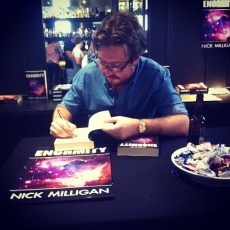
SIGN OF THE TIMES: Yours truly signing some books. Pic by my friend Miriam.
The four-hour event flew past – almost too fast to truly take it all in. But as I reflect now, it was a really fun and a fitting way to bring Enormity into the world.
Interesting fact: I actually signed a copy of Enormity for someone. I wrote, “Dear Norman, hope you like the opening line!”
Reading a few pages to a crowded room was a new experience, but hopefully something I will be forced to get used to. I’m not sure how my speech went down. There were some polite chuckles.
I also owe a debt of gratitude to Depot on Beaumont owner Chad Taylor for the use of his beautiful VIP third level. As a restaurant/bar/function room, I highly recommend the place. Check it out here: The Depot on Beaumont
As a first attempt at a book launch, I would have to call it a resounding success. I’m also grateful for the media support from ABC 1233 and Newcastle Mirage.
Here is my interview with ABC 1233 presenter Nick Gerber:
In other news, Enormity is now available around the world in paperback from Amazon. Click the link here to order:
Buy Enormity in paperback here
[image error]
[image error]
[image error]
[image error]
[image error]
[image error]
[image error]
[image error]
[image error]
[image error]
[image error]
[image error]
[image error]
[image error]
[image error]
[image error]
[image error]
[image error]
[image error]
[image error]
[image error]
[image error]
[image error]
[image error]
[image error]
[image error]


November 28, 2013
Tex Perkins: interview
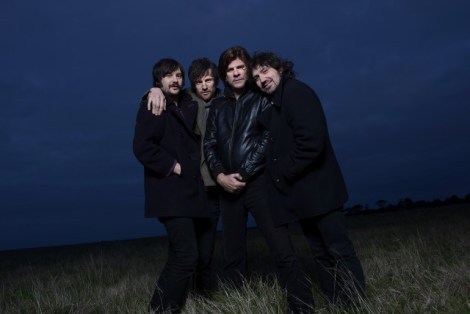
MONKEY BUSINESS: The Ape is the new beast from Tex Perkins. Pictured are Agars, Bourke, Perkins and Sanchez.
Tex Perkins makes some attention-grabbing remarks in the press release for his new band The Ape’s self-titled record.
“The Ape is the album I was born to make,” the rock singer writes. “It is the album that Richie – the president of the Tex Perkins fan club – has been waiting for. It is an album bursting with swing and grunt, and is easily the best thing I have ever done, or ever will do.”
This is a big statement from an entertainer whose diverse resume includes front man of rowdy rock pigs Beasts of Bourbon and eclectic southern rockers The Cruel Sea, plus one third of Tex, Don and Charlie. It’s also a sensational claim when you consider his acclaimed portrayal of Johnny Cash in the stage show The Man In Black and his film score for the impressive Australian movie Beautiful Kate.
When pressed to explain himself, it is not surprising that the towering crooner backtracks. “Well, I may have overstated it a little bit there,” he chuckles. “I could have just said, ‘Here’s another record I put out, everybody – here’s some more shit that I recorded.’ So I spiced it up a little bit.”
Perkins does stress that the comment about “Richie”, Perkins’ biggest fan, is true. “There’s this guy that has been following me and running the unofficial Tex Perkins website for a long time,” the singer says. “He’s seen all the sorts of things I’ve done and when he saw The Ape play he said, ‘Finally! This is the band I’ve been waiting for you to do. Because The Ape is somewhere between The Beasts of Bourbon and The Cruel Sea. It’s probably scarier and hairier than The Cruel Sea, but not as dark and intense as The Beasts of Bourbon.”
The Ape’s debut record is a collection of songs that Perkins has been working on for many years, but were not a musical match for his established projects. But the time came for The Ape to evolve. So he called in friend and former Magic Dirt guitarist Raul Sanchez, drummer Gas Agars – who played in Perkins’ The Dark Horses group – and former Dallas Crane bassist Pat Bourke.
“These are a collection of songs that didn’t find a home anywhere else,” Perkins explains. “I had this ever-increasing pile of ‘Ape’ songs. “Actually, Raul and Pat have played bits and pieces on some of those demos over the years, so it was natural to go back to them.”
Perkins says the finished album is a faithful recreation of his demo recordings, which were a departure from what the songwriter had released in the past. “Originally, they were me playing trashy, riffy guitars over the top of hip hop drum loops, so it had this funky hip hop vibe clashing with trashy ’70s guitar,” he says. For a long time I thought they were the important elements and that’s why these songs didn’t get a home for a long time because I felt that combination of feels was an important part. But I realised that for [the music] to come to life it had to be played by living, breathing beings – whether they be apes or humans.”
The songwriter chose his fellow Ape band members not just on their proven ability in the rock arena, but also on established camaraderie.
“I’ve known all these guys for a long time and realised that I get along with them very well and that’s always an added bonus when you’re forming bands,” Perkins says. “Not that these guys aren’t great players, but these days I think I would choose band members based on their personalities rather than their skill and their chops. You’ve got to spend a lot of time with people – if you can’t stand being in a band with them it makes the whole thing destined to fail.”
Perkins reveals that he has a hard drive full of musical ideas like those that led to the creation of The Ape. And his musical experiments are diverse – many of which he hopes will never see the light of day.
“I make a lot of music – it’s an impulse to do that,” Perkins says. “I do it for pure pleasure and it’s an ongoing learning experience about music. I record on my laptop all sorts of music. Even dance music – which, believe me, you will never hear. But, you never know, because when I started recording these Ape demos it was with the belief that no one would ever hear them. So my perspective on things can change – six years from now you might hear my dance album. But please, stop me – don’t let me do it!”
Fans of Perkins’ rock songwriting won’t have any objections to The Ape. The record is full of big riffs and takes some unexpected turns into more simmering, slow-building numbers. And it translates perfectly to a live setting.
“It’s a tight album – it’s not a loose, ‘who-gives-a-f***’ kind of sound,” Perkins says. “It wasn’t a careless approach – it was a study in simplicity. And it works equally well live. Up until this point we’ve been playing to people who haven’t heard this album before. People’s faces start out with an expression that says ‘Hmm, OK, what is this?’ Then their eyebrows go up a bit and the corner of the mouth opens a little and you see some teeth. Then they might glance to the person next to them. Then, before you know it, they’re leaping up and down – spitting and screaming.”
Perkins also downplays the supergroup label, which is invariably placed on new bands that feature established musicians. “It’s far less of a supergroup than any of my other groups,” the singer says. “I see it as my core act. All the others – Beasts of Bourbons, The Cruel Sea, The Dark Horses – they do operate in a supergroup fashion where all those people have careers doing their own thing and those bands come together periodically for a project or a tour. Then they disperse again. I see The Ape as being my central creative vehicle – for now!”


Gareth Liddiard: interview
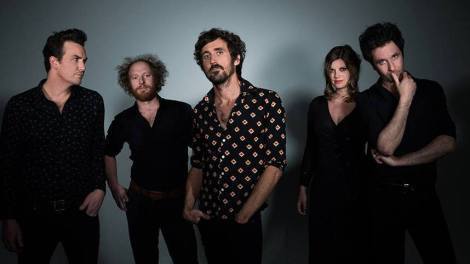 After their monumental 2008 record Havilah, it was hard to know where The Drones would go next. But they returned this year with their sixth album, I See Seaweed - another colossal musical journey.
After their monumental 2008 record Havilah, it was hard to know where The Drones would go next. But they returned this year with their sixth album, I See Seaweed - another colossal musical journey.
It was no great surprise that The Drones continued their trend of instant classics. Each of their six records have been gushed over by music journalists to the point where a reader could be forgiven for thinking each pundit was related to a band member.
But the praise is justified. I See Seaweed explores singer and principal songwriter Gareth Liddiard’s penchant for long pieces of music.
Many of the tracks build in cinematic atmosphere until they explode into the frenzied maelstroms that The Drones construct like no other musical act on the planet.
“It’s got that epicness,” Liddiard says of the new album. “We’ve always kind of had that, but I think the full-on noisy rock ‘n’ roll madness is moving to the background and the ‘epic’ thing is coming forward. We always want to do something we haven’t done in the past.”
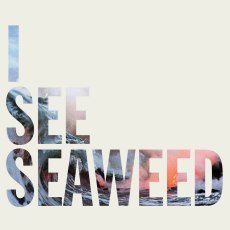 I See Seaweed‘s stand-out tracks employ dizzying repetition – songs like Nine Eyes andLaika – spat in Liddiard’s vitriolic, razor sharp poetic delivery. Their structure is reminiscent of the Kevin Carmody song River of Tears, which is frequently covered by The Drones.
I See Seaweed‘s stand-out tracks employ dizzying repetition – songs like Nine Eyes andLaika – spat in Liddiard’s vitriolic, razor sharp poetic delivery. Their structure is reminiscent of the Kevin Carmody song River of Tears, which is frequently covered by The Drones.
“Back in the day, bands like The Yardbirds used to call those songs ‘rave ups’,” Liddiard says. “We used to do something similar called From Black to Communist, which is just one chord. It’s the full-on rock ‘n’ roll equivalent of River of Tears – it just goes and goes and goes. It builds into madness, we’ve always done that. It’s fun – the MC5 would do it, and The Dirty Three would do it – just trying to get the wheels off the ground, you know?”
After Havilah, Liddiard made a stark, stunning acoustic record called Strange Tourist, that cemented him as Australia’s most important songwriter. But after extensive solo touring, the skinny singer with the gravelled voice was ready to pick up his electric guitar again.
“After Strange Tourist, I didn’t want to hear anymore acoustic guitar,” Liddiard says. “I had been there and done that. It was ‘folk’ music, but I don’t like that word, really. It was just the traditional acoustic thing, and I kind of perverted it. So I wanted to do massive electric guitar [music] but without being too old school or classic about it. Just to f*** up [the old school sound] – wherever we go we just want to f*** it up.”
The chaos begins with a song idea from Liddiard, who brings it to the band. The concepts are in varied states of completion when guitarist Dan Luscombe, bassist Fiona Kitschin and drummer Mike Noga sink their teeth in.
“I come in with a pretty good game plan and give it to everyone,” Liddiard says. “It’s not a super tight game plan, but it’s a general idea. Everyone does their thing and we see what happens. If it sounds shit we do something else.”
I See Seaweed required another layer of sound and saw the inclusion of a new member – keyboardist Steve Hesketh.
“It seemed like the natural thing to do,” Liddiard says. “I had been writing songs for four parts – two guitars, bass and drums – for yonks. You can kind of run out of ideas. We could do totally avant garde noise, with the guitars, but you have still got to move yourself and move people. So if we didn’t want to tamper with the guitars then something else had to give and that was a piano. You can do anything on [the piano] and we hardly got to the bottom of it with this album. Next record we’ll go further with it.”
The Drones needed a particular style of player – someone who could speak their musical language but also be diplomatic.
“Someone who can take criticism,” Liddiard chuckles. “Because we all sit around and someone does something and you go, ‘Yeah… it’s a bit shit.’ Ten years ago you would yell at each other but now when you go, ‘It’s a bit shit’ the [other person] says, ‘Ok, whatever, I’ll try something else.’ That takes a lot of learning. Stevie’s pretty good at that – he gets over it pretty quick. You want someone that can deal with strange, left-of-centre ideas. And you want someone you can giggle with and he’s a funny, funny guy. That’s the main thing – morale is a big deal in a band, because if you’re not enjoying it you won’t sound good.”
Liddiard is The Drones’ visionary, but he admits that he often requires his band mates to realise those musical visions.
“The later the song comes along in the making of the album, the more input they’ll have because I’ll be running out of ideas,” Liddiard says. “I’ll come in with a bed of bones and go, ‘Right, make this sound good.’ But early on I’ll have concepts.”
And gone are the days when The Drones could road test new ideas while on tour. The rise of mobile phone video cameras and Youtube has meant that bands have lost some control over what material reaches a wide audience. It has forced The Drones to only play songs live when they are polished and well rehearsed.
“You record a song as well as you possibly can and then you put the album out and go on tour,” Liddiard says. “You play that song 20 times and it’s better than it was recorded. But back in the day when bands started, before their first album, they could play a song live a million times and get really good at it. Now if you play Song X for the first time and it’s a bit of a disaster, someone will put it on Youtube. Then when you actually release the proper version of Song X a year down the track, the shit version will have a million views and the good version will never get seen. So if we haven’t recorded a song, we won’t play it live. Five or six years ago that wasn’t the case.”
I See Seaweed is out now.


November 13, 2013
Movie moments: thumbs replace guns
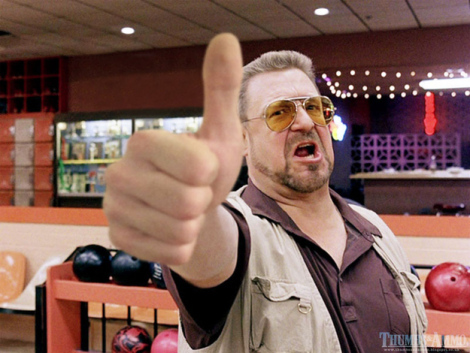 It’s always a relief to discover another person in in the world with far too much time on their hands. From the Steve Buscemi Eyes blog, to Kitten Covers and even pictures of celebrities without eyebrows or teeth, there are some websites that confirm why the internet should exist purely as a leisure item.
It’s always a relief to discover another person in in the world with far too much time on their hands. From the Steve Buscemi Eyes blog, to Kitten Covers and even pictures of celebrities without eyebrows or teeth, there are some websites that confirm why the internet should exist purely as a leisure item.
Here is something I just stumbled across: Thumbs and Ammo. It is self explanatory – classic moments with a thumb instead of a gun.
It’s about pacifism.
Enjoy.
[image error]
[image error]
[image error]
[image error]
[image error]
[image error]
[image error]
[image error]
[image error]
[image error]
[image error]
[image error]
[image error]
[image error]
[image error]
[image error]
[image error]
[image error]
[image error]
[image error]


November 10, 2013
Vegan-friendly sayings
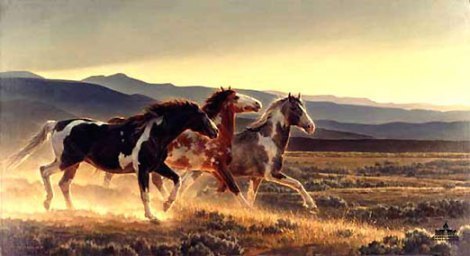
WILD STATEMENTS: Here are some appropriations of famous sayings that won’t upset animal-lovers
I completely admire and respect the beliefs, philosophies and core values of my vegan friends. I have even pondered what it would be like to live a bacon-free existence. But while none of the vegans I know are preachy, and go about their faux cheese diets without guilt-tripping those of us that would step over their dying grandmother for a fine Brie, I do feel guilty about eating products around them that, without question, have derived from the exploitation of a fellow animal.
Further to this: it occurred to me that so many turns-of-phrase – analogies – that we use from time to time also stem from the ill treatment of animals at the hands of humans. I now feel guilty about using these phrases in front of my vegan friends. So, for anyone that has vegan friends that they hold dear, here are some vegan-friendly alternatives to a series of common phrases:
# A bird in the hand should be with those other two birds in the bush, unless it is injured and you intend to nurse it to health
# A leopard can’t change its spots and nor should it have to – leave the leopard alone and just let it do its thing, it’s an individual
# As busy as a bee that is allowed to provide honey for its hive and not humans
# Get off your high horse – in fact, don’t be on any horse, leave horses alone
# You can’t lead a horse to water but if it finds water of its own free will and appears to be dehydrated then gently encourage it to drink – you should not make it drink
# There’s an elephant in the room – please release it back into the wild, it has no place in captivity
# Give a man a fish but only if he intends to return it to the ocean or river in which it was found – don’t teach him to fish, teach him to make a salad with Israeli couscous or something
# Let the cat out of the bag
# A fly in the ointment should be rescued
# Like lambs to the slaughter, which is murder
# Walking on eggshells, which have hatched in the wild
# Old sheep dressed as lamb … in nature
# Pigs might fly if we stop killing them and allow them to evolve wings
# Stone the crows, but only if by “stone” you mean “allow to live peacefully as crows”
# The early bird catches the worm, which is totally acceptable
# There’s more than one way to skin a cat but only if you’re an evil, murderous psychopath
# A red rag to a bull is only tormenting it – leave the bull alone, you idiot
# Never look a gift horse in the mouth because a horse is not a human’s to give – politely return the horse or release it into the wild
# No room to swing a cat, and even if there was room you definitely should not swing a cat – leave cats alone
# Birds of a feather flock together, which is excellent
And if you love animals, click here.


November 8, 2013
The Old Superhero: oil paintings by Andreas Englund
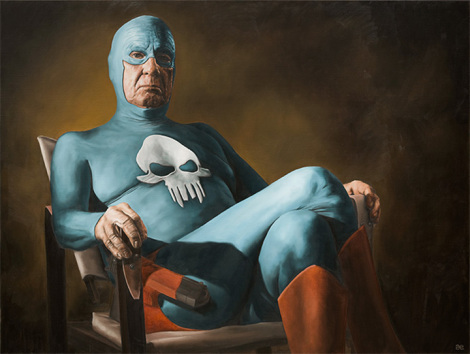 Here is a poignant collection of paintings by Swedish artist Andreas Englund. The images capture strength and frailty – they remind me of the masterpiece film Watchmen. As it says on his website, www.andreasenglund.com:
Here is a poignant collection of paintings by Swedish artist Andreas Englund. The images capture strength and frailty – they remind me of the masterpiece film Watchmen. As it says on his website, www.andreasenglund.com:
Andreas Englund was born in Falun in 1974, Sweden. Based in Stockholm, he is mostly recognised for the photo realistic and humoristic oil paintings depicting the everyday life of an anonymous superhero. The series ranges from the superhero’s first mission as a toddler to being an old man, still struggling with everyday trivialities.
Enjoy.
[image error]
[image error]
[image error]
[image error]
[image error]
[image error]
[image error]
[image error]
[image error]
[image error]
[image error]
[image error]
[image error]
[image error]



